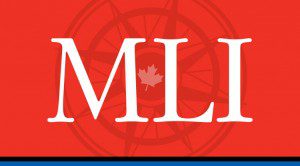 Canada’s national interest must dictate Ottawa’s ongoing review of defence policy, write Jeffrey Collins, Sean Speer and David McDonough for FrontLine Magazine.
Canada’s national interest must dictate Ottawa’s ongoing review of defence policy, write Jeffrey Collins, Sean Speer and David McDonough for FrontLine Magazine.
Nineteen defence policy thought leaders echoed that conclusion in a new Macdonald-Laurier Institute paper that surveyed a diverse group of defence experts, including scholars, thinkers, and practitioners.
By Jeffrey Collins, Sean Speer and David McDonough, March 16, 2017
Prime Minister Trudeau’s mandate letter for the new Foreign Affairs Minister, Chrystia Freeland, provides insight into the government’s vision for the Canadian Armed Forces (CAF), Canada’s place in the world, and how military power ought to be exercised.
The letter signals that the deployment of Canadian troops should be limited to theatres and circumstances aligning with “Canada’s national interest” – a directive that has, oddly enough, generated some media attention. One wonders what else would guide such grave and sober decisions.
A new report by the Macdonald-Laurier Institute (MLI), entitled “First Principles and the National Interest: Recommendations for a New Canadian Defence Policy”, validates the Prime Minister’s position. The study is based on the results of an MLI survey on Canadian defence policy from a diverse group of defence experts, including scholars, thinkers, and practitioners. The participants didn’t necessarily see eye-to-eye on everything, but one view was universally expressed: Canada’s defence policy in general, and the deployment of the CAF in particular, must be dictated by a hard-headed assessment of our national interest.
It comes at a critical juncture for Canadian defence policy. The Trudeau government is conducting a comprehensive review with the goal of updating its predecessor’s Canada First Defence Strategy. The previous strategy had its strengths and weaknesses but new fiscal realities and a changing global security environment – including a resurgent Russia, an aggressive China, a renewed terrorist threat, and the political uncertainty caused by the Trump presidency – have driven the need for such a review.
Canada’s defence policy in general, and the deployment of the CAF in particular, must be dictated by a hard-headed assessment of our national interest.
The government is right to focus on the first principles of Canadian defence policy – by answering the “what” and “why” of defence rather than simply “how.” It is critical to first establish the national interest objectives that must guide policy choices such as funding and procurement.
This is where the MLI report has something important to offer. By drawing on an extensive group of defence policy experts, we were able to conduct our own high-level consultation and contribute to the government’s own process.
The survey respondents overwhelmingly support a focus on Canada’s national interest over idealized conceptions of Canada as an “honest broker”, or of peacekeeping as an end in and of itself. This is not to say that there wasn’t disagreement or that many weren’t motivated by humanitarian or other considerations – but these factors were clearly recognized as subordinate to the national interest.
But what is the national interest? Three basic, common priorities were identified. The first is the importance of Canada’s bilateral relationship with the United States. The Trump presidency doesn’t change this – in fact, it reinforces its importance, as the government has rightly recognized. Canada cannot let the relationship deteriorate over isolationist or security concerns. The economic costs would be too significant.
The second priority is to maintain and strengthen NATO. Today, we confront a range of conventional and emerging threats, including Chinese and Russian aggression, the proliferation of weapons of mass destruction, cyber threats, global terrorism, as well as the weak governance and failed states that facilitate global instability. A modern and effective NATO alliance is sorely needed. And Canada has an important role to play here, especially in light of continuing questions about America’s commitment under the new administration.
The third is to properly assess our roles in other multilateral organizations. All too often, Canada has displayed an inordinate amount of attention on the United Nations. It can still work with like-minded countries in reforming the UN security and governance structure, and even provide training and technical support to UN peace support operations. But it should be wary of being either fixated on the world body or of agreeing to deploy frontline ground forces to UN missions, at least without considerable bipartisan discussion and recognition of the possible risks such an operation could entail.
It will be essential now for the government’s review to spell out precisely what the national interest is.
Instead, the government could usefully spend more time advancing its defence interests in other regional, multilateral organizations, including the Arctic Council, East Asia Summit, and the ASEAN Defence Minister’s Meeting-Plus in the Asia-Pacific.
To deliver on these priorities, Canada needs to maintain a multi-purpose and combat-capable force that is both properly funded and fully resourced. Increasing defence spending to 2% of Gross Domestic Product is commonly cited as a proper goal. At minimum, Ottawa must ensure funding levels are sufficient to ensure the CAF retain the capability and capacity to undertake requisite missions – at home and abroad.
The Prime Minister is right to focus Canadian defence policy on the national interest. It will be essential now for the government’s review to spell out precisely what the national interest is. It’s time to get back to first principles.
Jeffrey Collins is research associate at the Macdonald-Laurier Institute (MLI); Sean Speer is a Munk Senior Fellow at MLI; and Dr. David McDonough is MLI’s deputy editor. Collins and Speer are co-authors of the MLI study, First Principles and the National Interest: Recommendations for a New Canadian Defence Policy.




